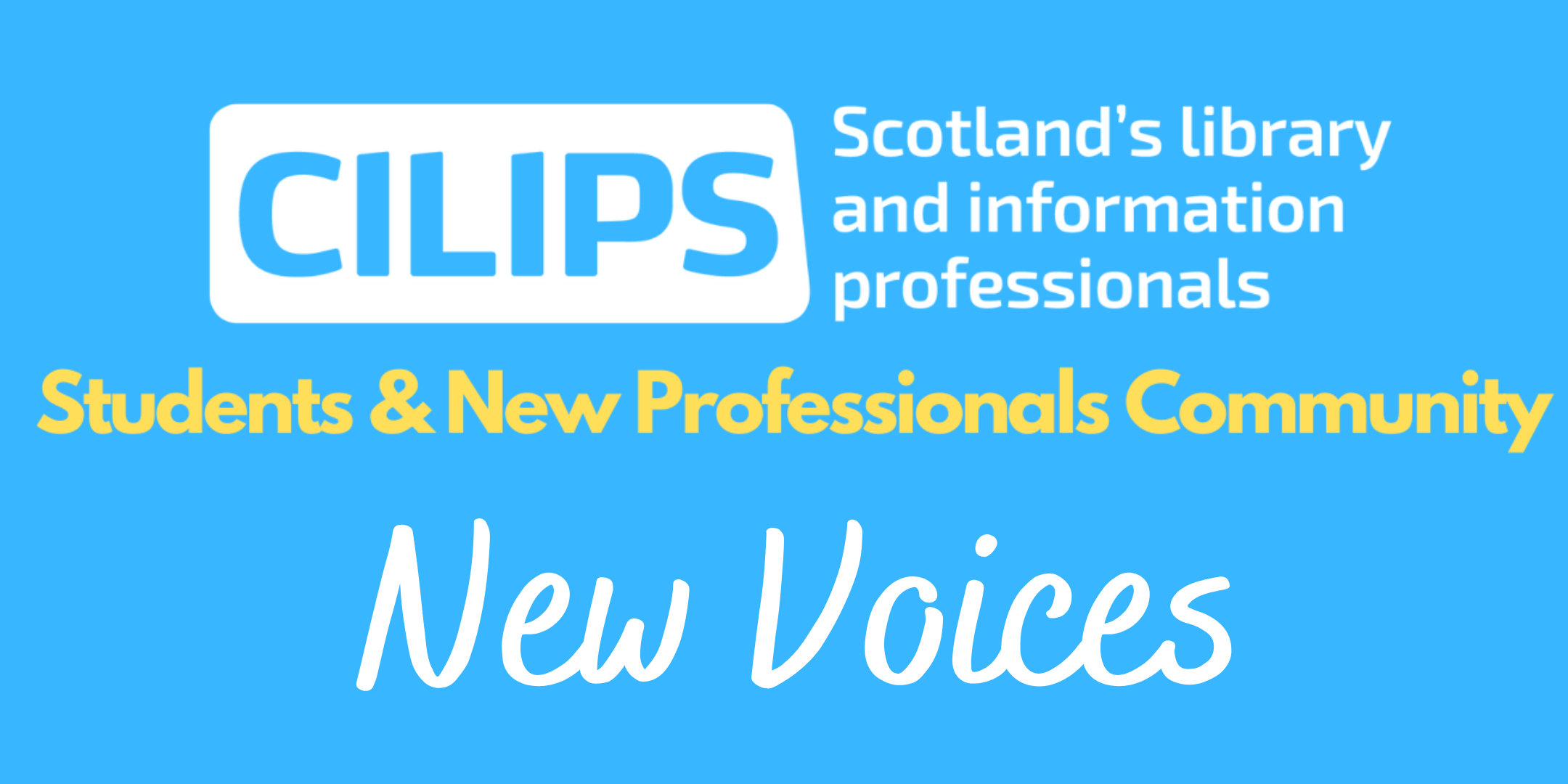New Voices RGU Student Series 2023 – Becca Bolger
Category: Blog, New Voices, New Voices, RGU Student Series

In this 2023 Student Series for the New Voices blog, the CILIPS Students & New Professionals Community will be sharing the views of Robert Gordon University students from the MSc in Information and Library Studies. With special thanks to Dr Konstantina Martzoukou, Teaching Excellence Fellow and Associate Professor, for organising these fantastic contributions. This series will be shared by CILIPS Graduate Trainee Leah Higgins.
Thank you to RGU Student Becca Bolger for this investigation into how libraries can help to tackle misinformation. Becca is a part-time, online student in the MSc Information and Library Studies RGU course. Professionally, they are interested in the role that libraries play in fostering community, digital literacy, and accessibility. Whilst also enjoying painting and walking for hours with a good audiobook or podcast.
Information Literacy, Social Media, and Tackling Misinformation in Libraries
Our ability to think critically and pass judgment on the world around us is the foundation of ‘Information Literacy’: a set lifelong skills and abilities (that is not exclusive to written text) encompassing information in all forms. A human right, these skills should empower individuals to feel engaged and well-informed in their everyday lives (CILIP, 2018).
As such, Information Literacy naturally intersects with other forms of knowledge and understanding. ‘Media Literacy’ is a facet of this which deals more specifically with a person’s ability to understand digital media as a “social, political and education tool” as well as its production as a “technical practice” (JISC Framework, 2019). It deals with a person’s ability to analyse, and critically evaluate different forms of media (UNESCO, 2020).
The Scottish Government has addressed misinformation in the media as an increasingly prevalent, albeit not new, concern, identifying children and teenagers as being a priority group for targeted intervention (McDonald, 2021).
Generation Z and Alpha are more digitally homogenous age groups; being born in a time where the Internet, smartphones and social media were and are heavily integrated into all aspects of living (Perez-Escoda et al., 2021).
A prime example of the spread of misinformation via social media was seen during the outburst of Coronavirus (Skarpa and Garaoufallou, 2022). Similarly, misinformation about the conflict between Russia and Ukraine was widely spread in social media platforms such as Tik Tok, Snapchat and Instagram, with teenagers and often pre-teens being exposed to an influx of unchecked facts (Orlando, 2022).
Information professions are seen as playing a key role in tackling the spread of misinformation; curating credible knowledge sources physically and digitally, as well as educating the public to evaluate what they see online (Skarpa and Garaoufallou, 2022).
It is vital that young people are taught to be active participants when consuming audio-visual media. Librarians must be creative when presenting children and teenagers with learning opportunities within this context to ensure they are appealing and relevant to their interests. They must think broadly on what is considered a ‘text’ when valuing audio and visual media as much as traditional books (Renee Hobbs et al.,2019). An opportunity to critically examine a TV programme, film or song can allow children to decode meaning and explore ‘text’ and ‘subtext’ in an easily accessible manner, which feels more pertinent to their interests. Developing these skills within familiar parameters can allow them to start deconstructing online sources, advertisements, and news articles (Quijada 2013).
Children need to be taught digital and media literacy foundationally; catering to their interests to establish these skills before building up to more complex and challenging tasks. It should be viewed with the same level of importance as reading, writing and arithmetic (Zacho, 2016). There needs to be training in place for librarians to ensure they feel confident delivering these sessions (Martzoukou et al., 2020).
While it is highly unlikely for a library to ignore integrating technology, there can still be a stigma around utilising media as an education tool. The idea of watching a screen as opposed to reading a book can still be seen as an inherently passive activity (Dewitt, 2017).
Establishing links within the community, to enable these sessions to take off can be a challenge within itself. In the case of digital media, there may be issues surrounding copyright and the process of selecting appropriate material may be timely and costly. This lack of funding, staff training and resources are all major stumbling blocks when it comes to establishing these types of programmes (Charabarti, 2016).
Ultimately, librarians may have to prioritise the basic functionality of the library over the increasing social demands for tech savvy spaces.
Thank you to Becca for investigating how libraries can work to tackle the spread of misinformation in the time of social media.
Stay tuned for more in the 2023 New Voices RGU Student Series coming soon and be sure to check out the rest of CILIPS SNPC’s New Voices blog.